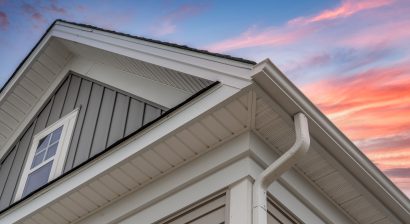Determining the Number of Solar Panels Needed for Your Home

As renewable energy gains momentum and homeowners increasingly seek sustainable solutions, the choice to harness solar energy has become increasingly popular. However, with the plethora of options available in the market, selecting the most suitable solar panels for your home can feel overwhelming.
From efficiency and durability to cost and warranty considerations, making an informed decision requires careful evaluation. We’re here to provide you with a comprehensive guide to help navigate the process of choosing solar panels for your home. By understanding the key factors and asking the right questions, you can confidently embark on your solar journey and maximize your long-term savings.
Steps to Follow
1. Assess Energy Usage
The first step is to measure your energy consumption. Determine the amount of solar energy needed to meet your monthly and yearly electricity bills by examining the total kilowatt-hours (kWh) used within a specific timeframe, such as a year. Having this information will enable you to estimate the solar energy capacity required to power your home or business.
2. Determine Panel Efficiency
Solar panel efficiency is expressed as a percentage and measures the amount of sunlight a panel can convert into usable electricity. Factors like the panel’s composition, roof placement, and design can impact its efficiency. Opting for more efficient panels may have a higher initial cost but can result in greater energy savings and a higher return on investment (ROI) over time.
3. Determine Solar Panel Production
Understanding the production ratio, which compares anticipated energy output (in kWh) to actual system size (in W), is essential. However, this calculation can become complex and often requires professional expertise. Consider factors such as the amount of sunlight your home receives and the extent of shading.
4. Determine the Number of Panels
To accurately determine the number of solar panels needed, divide your required panel capacity by the rating of the individual solar panels you plan to use. This calculation will provide an approximate number of panels required for your system.
Factors That Influence How Many Panels You Need
If you’re ready to commit to solar energy but don’t know where to start, we’ve compiled a list of factors to consider when choosing the type and quantity of panels for your home.
1. Solar Panel Type
Explore the three main types of solar panels: monocrystalline, polycrystalline, and thin film. Each has its unique features and efficiency levels, allowing you to choose the best fit for your needs.
Monocrystalline: Highly efficient panels with an efficiency rating of 15%–25%.
Polycrystalline: Cost-effective panels with an efficiency rating of 15%–25%.
Thin film: Ideal for specialized projects, with an efficiency range of 10%–20%.
2. Hours of Sunlight
Calculating your expected peak solar hours is essential to determine your solar energy potential. This number accounts for variations in sunshine based on seasonal and daily changes, providing a realistic expectation of your solar needs.
3. Home Layout
Your home’s layout and roof design play a significant role in determining the size of your solar panel system. Unique roof designs or the presence of chimneys may limit the number of panels you can install. Consider factors like roof shading and slope angle.
Final Thoughts
By following the steps outlined in this guide, you can make an informed decision based on your electricity consumption, desired energy independence, system efficiency, and panel capacity. Don’t forget to consider regional factors such as climate and shading, and consult with solar professionals for accuracy in determining your system size.
With the right number of solar panels tailored to your specific needs, you can embark on a sustainable energy journey while enjoying the benefits of renewable power for years to come.
FAQ
Is it possible to put too many solar panels on your home?
Yes, it is possible to put too many solar panels on your home. It’s important to strike a balance between your energy needs, available space, and budget to ensure an optimal solar panel installation for your home.
Should I consult a professional solar panel installer?
Consulting a professional is recommended. They can conduct an energy assessment, evaluate your roof’s suitability, consider local guidance, and provide expert guidance on the optimal number of panels for your specific needs.
What are the cost implications of installing too many solar panels?
Installing excessive panels can increase upfront costs and extend the payback period. It’s important to carefully assess your energy needs and balance them with your budget to achieve cost-effective solar panel installation.





